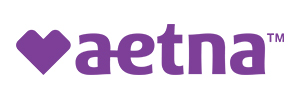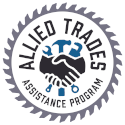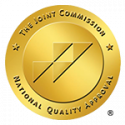Drug and alcohol rehab, and the road to recovery usually start with detox. You’ve probably heard the term detox on more than one occasion. But how much do you really know about drug and alcohol detox? We don’t pay that much attention to detox until we or someone we love needs it. If you search for “drug treatment near me” chances are high you will come across detox again, which is why it’s crucial to understand how detox works, what drug and alcohol detox entails, and what you can expect. Read on to learn more about drug and alcohol detox.
What is detox?
Detoxification, or detox, is a process wherein the body eliminates toxins, drugs, and other substances. The main goal of detox is to help an affected person safely manage withdrawal symptoms that occur when they stop taking drugs or drinking alcohol.
Detox is not a standalone treatment. Completing detox doesn’t mean you have recovered from addiction. Instead, detox is the first step toward recovery. You see, when a person stops taking drugs or alcohol after long, frequent, and heavy use, they tend to develop withdrawal symptoms six to 24 hours later. These symptoms can be both physically and psychologically challenging and require hospitalization in order to successfully detox.
The main premise of detox is to provide a safe atmosphere to physically detox while learning new coping mechanisms to deal with the psychological detoxing process. Therefore, detox aims to help manage physical symptoms so that you go through the process successfully and safely. This prepares you mentally for other stages.
Types of detox
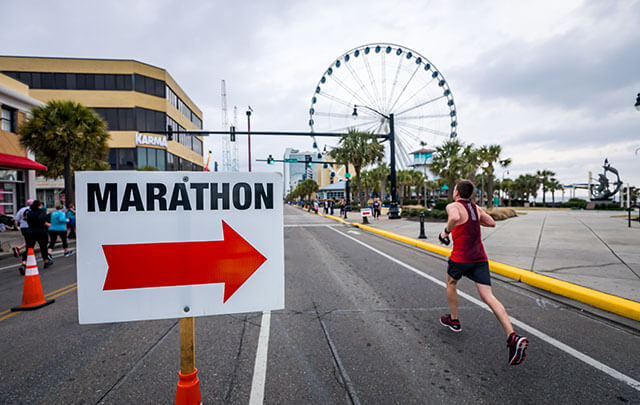
A person can undergo detox in several ways. As part of drug rehab, you’ll get clear instructions on how to go through this process as smoothly as possible. You will also get guidance on the best type of detox. When it comes to the types, they include:
Medical detox
A person stays at a facility so that their detox and withdrawal symptoms are closely monitored and supervised. This type of detox is the most common and the most widely appreciated whether you want to treat alcohol addiction, or you want to start drug treatment. With medical detox, people have supervision and support as they detox. That way, they are not forced to deal with cravings and symptoms without much-needed help
Drug tapering
A person gradually decreases the use of a drug or alcohol. This is also performed with medical supervision in many cases. The main idea is that by lowering the doses you take; the body gradually gets used to sobriety in slow and measured steps. However, drug tapering protocols can take a long time to work, and it comes with a risk of relapse
At-home detox
Detox process occurs at home. We will focus more on at-home detox below
Cold turkey
Stopped drinking alcohol or using drugs abruptly. While this approach may appeal to many because it allows people to leave drugs or alcohol behind, it comes with many risks. After all, some drugs are too dangerous to stop taking all at once, and others induce severe withdrawal symptoms that are difficult to ignore. It’s also important to mention rapid withdrawal can lead to crisis and relapse
Rapid detox is also an option for some. In a nutshell, people who sign up for this type of detox enroll in programs where they are sedated. Then, they get medications that neutralize drug particles and make them inactive.
What does this detox process looks like?
Every person is different, and detox needs differ too. While the exact process may vary from one person to another, in most cases, it involves the following stages:
- Evaluation – patients are screened for physical and mental health issues. This also includes a comprehensive review of the drug, medical, and psychiatric histories
- Stabilization – the patient is stabilized with medical and psychological therapy. The main objective of stabilization is to prevent harm. During this process, a doctor may prescribe medications to reduce withdrawal symptoms and prevent complications
- Preparing entry to treatment – preparation for a treatment program and what to expect from it
Alcohol withdrawal
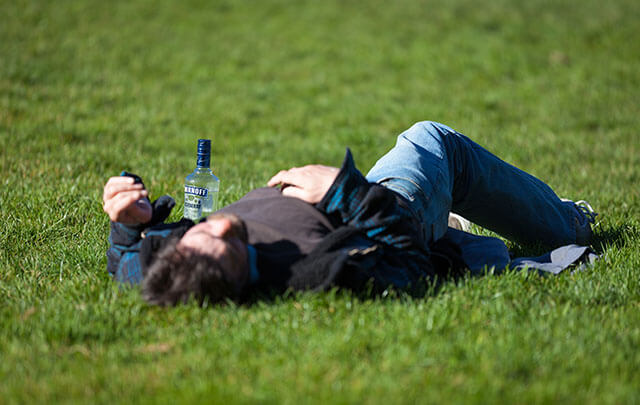
Alcohol detox should take place in a medically-supervised and closely monitored environment. For a person who enjoys a drink or two occasionally, it’s not a big deal to decide they won’t drink alcohol again. However, people who binge drink and develop alcoholism tend to experience various consequences of withdrawal once they abruptly stop drinking alcohol. That’s exactly why detox is an important segment of alcohol rehab.
Some of the most severe consequences include stroke, heart attack, and even seizures. Delirium tremors and hallucinations may also occur.
While the timeline for alcohol detox may depend from one person to another, it usually looks like this:
6-12 hours after the last drink – occurrence of mild symptoms such as anxiety, insomnia, abdominal pain, and nausea
12-24 hours after the last drink – increased body temperature, hallucinations, confusion, and unusual heart rate may occur
24-48 hours after the last drink – seizures may develop
48-72 hours after the last drink – development of delirium tremors
Keep in mind that the timeline of alcohol detox and alcohol treatment depends on several factors, including the severity of the addiction, underlying health conditions such as liver or kidney disease, whether you’re a smoker, and other health factors.
What drugs cause withdrawal?
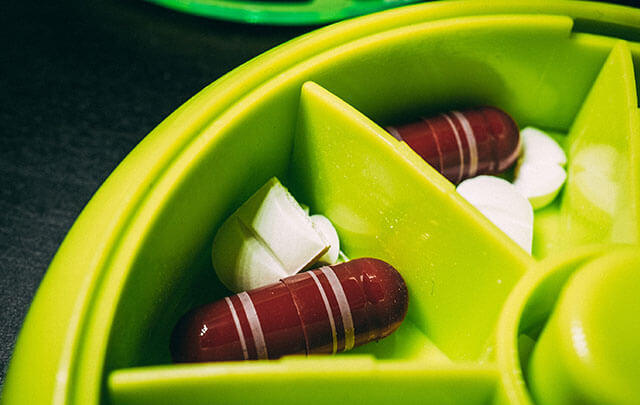
When discussing alcohol and drug detox, it’s crucial to address the drugs that cause withdrawal. Besides alcohol, people can experience withdrawal symptoms if they use:
- Opiates (morphine, heroin, Vicodin, OxyContin) (Read: Heroin: The risks, the symptoms and the treatment)
- Benzodiazepines (Valium, Klonopin, Halcyon) (Read: Understanding Benzodiazepines Addiction and Benzo Drug Treatment)
- Cocaine
- Amphetamines
- Sleep medications
Each of these drug classes may develop their own withdrawal symptoms. Let’s take opiate detox as an example. Withdrawal symptoms include:
- Anxiety
- Eyes tearing up
- Inability to sleep
- Muscle aches
- Restlessness
- Runny nose
- Sweating excessively
- Yawning often
People may also experience diarrhea, abdominal cramping, high blood pressure, rapid heartbeat, dilated pupils, nausea and vomiting, goosebumps.
Cocaine may not cause serious complications like alcohol and other drugs, but it can still induce serious effects. You may experience anxiety, irritable behavior, inability to concentrate.
On the other hand, benzodiazepines may cause serious complications during withdrawal. People who try to quit using benzodiazepines too quickly can develop tremors, seizures, and hallucinations. People who use this drug may also experience symptoms such as irritability, upset stomach, weight loss, heart palpitations, and anxiety.
What to expect from detox?
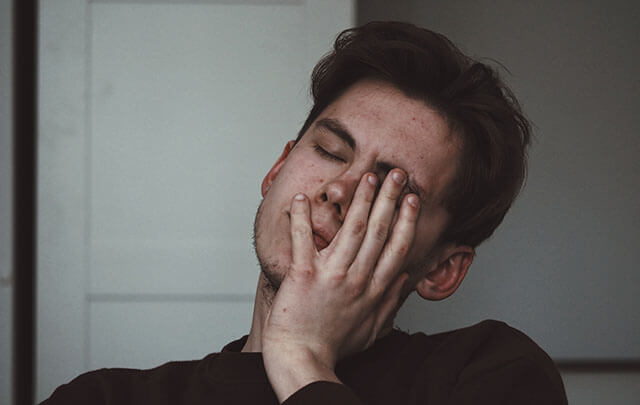
As mentioned above, detox is not an independent treatment. Instead, it’s a part of recovery from drugs or alcohol. Having reasonable expectations is crucial for the successful completion of the process. You can expect that the process may be over in several days, but it can extend to a week or ten days. Always remember that every person responds to detox differently.
It’s also important to expect some symptoms of withdrawal. While not every person will experience the same symptoms, you need to keep in mind that with help, support, and proper guidance, you can overcome all withdrawal symptoms and strengthen both physically and mentally.
You can expect to have good days and bad days. But as the detox process keeps going, those bad days may start to subside as the body gets used to the idea you’re not consuming drugs or alcohol anymore.
Can I detox at home?
It’s not uncommon for people to believe they can overcome addiction and detox on their own, without anyone’s help. This belief is intensified with the fact that detox kits are widely available today. Home detox kits promise safe and easy detox without too much hassle. The manufacturers claim you can start the road to recovery with products made of herbs, tinctures, and vitamins. Keep in mind that many brands provide inaccurate information, deliberately.
Home detox kits don’t contain elements that are necessary for the safe and effective completion of this process. In other words, manufacturer claims are exaggerated. That’s why buying a home detox kit is like opting for going cold-turkey.
Ideally, detox should be performed with medical supervision.
How long does detox last?
Whether you’re getting alcohol detox or want to treat addiction to some drugs, you’re probably wondering how long it lasts. Generally speaking, the detox process lasts between seven and ten days.
The length of detox is not the same for everyone. Various factors influence the duration of detox, including the severity of addiction, physical and mental wellbeing, and severity of withdrawal symptoms.
What happens after detox?
Although alcohol or drug rehab may seem like it lasts forever, the process requires a few days only, as mentioned above.
Let’s say you complete heroin detox. What comes next? After detox, you progress to a drug rehab program where you will receive counseling and support. The same applies to detox from other drugs and alcohol.
Conclusion
Drug and alcohol detox is an important step on the road to recovery. Detox eliminates the substance out of your body, but it’s more complicated than people think. Because each patient is unique Sobriety Solutions will create a customized treatment plan for every one of our clients. Give us a call at (833) 880-4357 and we can help you or your loved one get into detox today!







